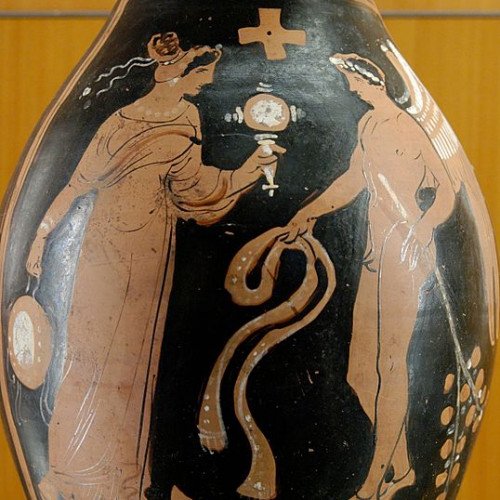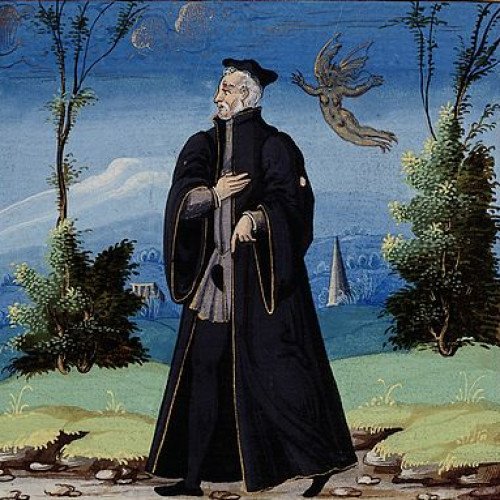Daemon (classical mythology) vs Familiar

Daemon (classical mythology)
Daemon is the Latin word for the Ancient Greek daimon (δαίμων: "god", "godlike", "power", "fate"), which originally referred to a lesser deity or guiding spirit such as the daemons of ancient Greek religion and mythology and of later Hellenistic religion and philosophy. The word is derived from Proto-Indo-European *daimon "provider, divider (of fortunes or destinies)," from the root *da- "to divide". Daimons were possibly seen as the souls of men of the golden age acting as tutelary deities, according to entry δαίμων at Liddell & Scott.
Statistics for this Xoptio

Familiar
In European folklore of the Medieval and Early Modern periods, familiars (sometimes referred to as familiar spirits) were believed to be supernatural entities that would assist witches and cunning folk in their practice of magic. According to records of the time, those alleging to have had contact with familiar spirits reported that they could manifest as numerous forms, usually as an animal, but sometimes as a human or humanoid figure, and were described as "clearly defined, three-dimensional… forms, vivid with colour and animated with movement and sound", as opposed to descriptions of ghosts with their "smoky, undefined form[s]".When they served witches, they were often thought to be malevolent, but while when working for cunning folk they were often considered benevolent (although there was some ambiguity in both cases). The former were often categorized as demons, while the latter were more commonly thought of and described as fairies. The main purpose of familiars was to serve the witch or young witch, providing protection for them as they came into their new powers.Since the 20th century some magical practitioners, including adherents of the Neopagan religion of Wicca, use the concept of familiars, due to their association with older forms of magic. These contemporary practitioners utilize pets or wildlife, or believe that invisible versions of familiars act as magical aids.